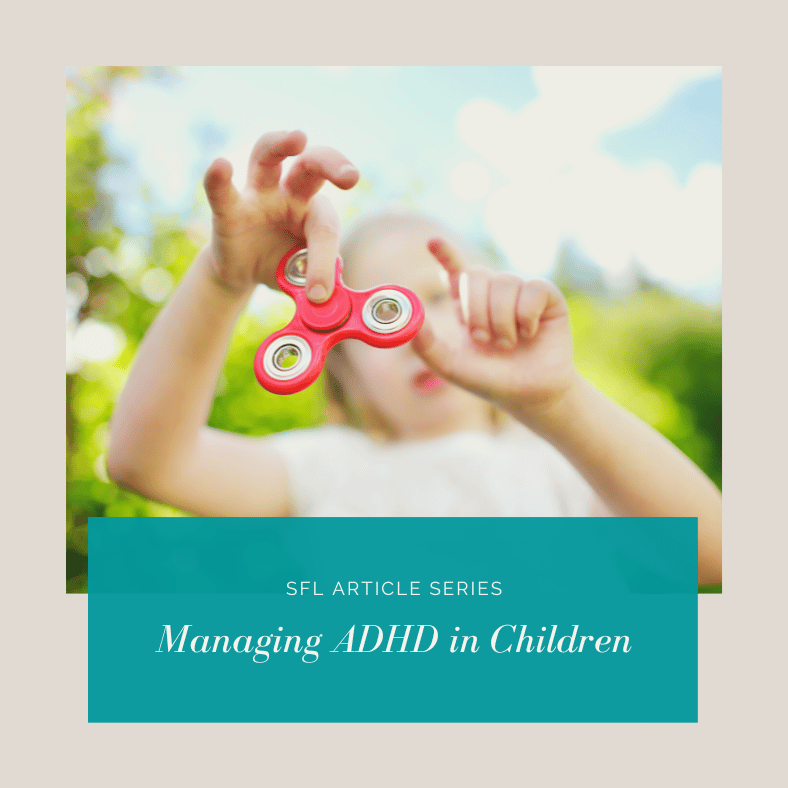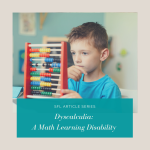No products in the cart.

Managing ADHD can be a challenging task for parents with children with attentional challenges. As an educational specialist who works closely with students with ADHD, I see the challenges firsthand and understand the misconceptions surrounding this condition. In this comprehensive guide, we’ll delve into the world of ADHD, dispel myths, and offer actionable strategies to help your child succeed.
What is ADHD?
Attention-Deficit/Hyperactivity Disorder (ADHD) is one of the most common neurodevelopmental disorders in children, often persisting into adulthood1. It is characterized by persistent patterns of inattention, hyperactivity, and impulsivity that interfere with functioning or development2. People with ADHD may seem restless, have trouble focusing, and might act without thinking. However, it’s important to remember that these behaviors exist on a spectrum, and everyone experiences them to varying degrees.
What Causes ADHD?
The exact cause of ADHD isn’t known, but research suggests that genetics play a significant role3. Other factors, such as premature birth, low birth weight, or brain injuries, might contribute to the development of this disorder4.
What are some Common Myths about ADHD?
There’s a lot of misinformation about ADHD, leading to harmful stereotypes and stigmas.
Myth #1: It’s crucial to know that ADHD is not a result of bad parenting or lack of discipline. It’s a real, medical condition caused by differences in brain development and brain activity5.
Myth #2: Another common myth about ADHD is that it only affects children and they can “outgrow it.” ADHD persists into adulthood and many people are not diagnosed until later in life when their symptoms continue to cause consequential challenges as adults.
Myth #3: Lastly, many believe that Medication is the only treatment for ADHD. Educational Therapy, ADHD Coaching, or lifestyle adjustments can all be effective in managing ADHD.
What are the Symptoms of ADHD?
Symptoms of ADHD can be categorized into two groups: inattentive and hyperactive/impulsive6.
Inattentive symptoms include difficulty staying focused, being easily distracted, forgetfulness, and trouble following instructions. Hyperactive/impulsive symptoms can be seen as constant fidgeting, excessive talking, difficulty waiting their turn, and acting without considering the consequences.
As someone with ADHD, I’ve personally grappled with these symptoms. For instance, during my school days, I found it challenging to concentrate on long lectures or complete assignments that required sustained attention.
How do you Diagnose ADHD?
ADHD is typically diagnosed through a comprehensive evaluation by a healthcare provider, which may include interviews, observations, and standardized tests7.
What Treatments are available for ADHD?
Treatment approaches often involve a combination of medication, psychotherapy, education, and training8. Medication can help manage symptoms, but it’s not a cure. It’s most effective when combined with other treatments like educational/behavioral therapy and parental support.
Can Educational Therapy Help Manage ADHD?
Education therapy, particularly in mathematics and sciences like Advanced Physics, can be beneficial for children with ADHD. This approach uses tailored strategies that accommodate the unique learning needs of each child, fostering a supportive environment that promotes academic growth and confidence.
Some strategies include breaking down complex concepts into manageable chunks, teaching time management skills, incorporating hands-on activities, and providing immediate feedback. As an education therapist, I’ve seen firsthand how these methods can transform a child’s learning experience, turning perceived weaknesses into strengths.
What are some tips for Managing ADHD in Children?
Parents play a crucial role in supporting their children with ADHD. Here are some tips:
Educate Yourself: The more you know about ADHD, the better equipped you’ll be to help your child.
Positive Reinforcement: Praise and reward your child’s efforts and successes to boost their self-esteem.
Consistent Routines: Structure and predictability can help your child manage their symptoms.
Encourage Physical Activity: Regular exercise can help reduce hyperactivity and improve concentration.
Seek Professional Help: Don’t hesitate to reach out to professionals for guidance and support.
In conclusion, while ADHD presents challenges, it also brings unique perspectives and strengths. With understanding, support, and the right strategies, your child can thrive academically and personally.
Written by Susan Ardila, M.Ed Math Education K-12
Footnotes
Related Articles
Looking for Academic Support and other Educational Services?
You can schedule a free initial consultation to learn more about our services. We will listen to your concerns, answer any questions, learn about the student’s needs, and help guide you through our new student intake process.






